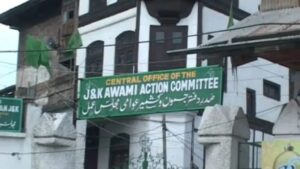
Reservation Policy: The Systematic Disempowerment of Kashmiri Muslims
Mir Muhammad Afzal
Before we begin analyzing the logic behind the reservation policy imposed by India in Kashmir through its installed governor administration, we must know that there are dozens of disenfranchisement programs already in place. Whether it is lowering import duties on Washington apples, almonds, and walnuts to undermine Kashmir’s economy, halting the transport of Kashmiri apples to Indian markets, constructing roads and railway tracks through fertile agricultural lands or converting dense forests into military firing ranges, India has long been executing a well-planned strategy to disempower and economically strangle the Kashmiri population.
Thus, the reservation policy that disproportionately affects the ethnic Kashmiri-speaking population is not a policy error but a deliberate move to weaken and marginalize those who have historically been at the forefront of resistance against Indian rule. So the recent data on job quotas distribution between the Kashmir Valley and Jammu region exposing a glaring imbalance must be viewed as part of this broader agenda of disenfranchisement and suppression. Otherwise, how is it that while reservations in India are capped at 50%, in Jammu and Kashmir, they have been set at 70%? What is beneficial for them in India can surely not be the same in Kashmir, for Kashmir is an illegally occupied territory, and to tame and break the people’s will against this unholy integration – kept alive through brute force – they have been actively framing policies to disenfranchise Kashmiris, especially the valley’s Muslims.
This policy has been carefully crafted to disempower valley-based Muslims while favoring the Hindu-dominated Jammu region, which the Indian state views as a “political” stronghold. For decades, India has used Jammu as a vote bank, ensuring that the Hindu-majority region remains politically dominant while actively working to disenfranchise Kashmiri Muslims through numerous policies. This reservation policy is merely an extension of that strategy.
The truth is that no “electoral” process in Kashmir – no matter how much it is rigged or stage-managed – can ever substitute the plebiscite promised by the Indian government itself. The fundamental right of Kashmiris to determine their own future has been violated at every turn, and these policies of economic and political suppression serve only the purpose of breaking the will of the people and force them into submission.
Therefore, while it is important to raise our voices against this unjust reservation policy, we must also diagnose the root cause and work towards its eradication. Our struggle is not merely against an administrative injustice but it is against an oppressive colonial system that seeks to erase our identity, displace our people, and dismantle our resistance. No matter how difficult the circumstances become, we must remain steadfast in our struggle for liberation and educate our people about the true nature of our oppressor’s designs.



